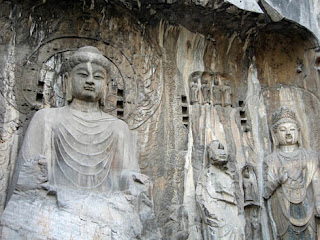From Global Networks to Cultural Diversity
At a time when notions of cultural diversity and multiculturalism appear to be under threat it was refreshing to come across UNESCO's Convention on the Protection and Promotion of the Diversity of Cultural Expressions (2005).
For Community Media Activists, the Convention is a ringing endorsement of our struggle for greater variety, participation and engagement in a wide range of cultural expression, production, and consumption.
The Convention builds on and updates the emerging global communications networks and opportunities that UNESCO had brilliantly researched in the late 1970s. For ardent humanitarians here is the opening text:
The General Conference of the United Nations Educational, Scientific and Cultural Organization, meeting in Paris from 3 to 21 October 2005 at its 33rd session,
Affirming that cultural diversity is a defining characteristic of humanity,
Conscious that cultural diversity forms a common heritage of humanity and should be cherished and preserved for the benefit of all,
Being aware that cultural diversity creates a rich and varied world, which increases the range of choices and nurtures human capacities and values, and therefore is a mainspring for sustainable development for communities, peoples and nations,
Recalling that cultural diversity, flourishing within a framework of democracy, tolerance, social justice and mutual respect between peoples and cultures, is indispensable for peace and security at the local, national and international levels,
Celebrating the importance of cultural diversity for the full realization of human rights and fundamental freedoms proclaimed in the Universal Declaration of Human Rights and other universally recognized instruments,
Emphasizing the need to incorporate culture as a strategic element in national and international development policies, as well as in international development cooperation, taking into account also the United Nations Millennium Declaration (2000) with its special emphasis on poverty eradication,
Taking into account that culture takes diverse forms across time and space and that this diversity is embodied in the uniqueness and plurality of the identities and cultural expressions of the peoples and societies making up humanity,
Recognizing the importance of traditional knowledge as a source of intangible and material wealth, and in particular the knowledge systems of indigenous peoples, and its positive contribution to sustainable development, as well as the need for its adequate protection and promotion,
Recognizing the need to take measures to protect the diversity of cultural expressions, including their contents, especially in situations where cultural expressions may be threatened by the possibility of extinction or serious impairment,
Emphasizing the importance of culture for social cohesion in general, and in particular its potential for the enhancement of the status and role of women in society,
Being aware that cultural diversity is strengthened by the free flow of ideas, and that it is nurtured by constant exchanges and interaction between cultures,
Reaffirming that freedom of thought, expression and information, as well as diversity of the media, enable cultural expressions to flourish within societies,
Recognizing that the diversity of cultural expressions, including traditional cultural expressions, is an important factor that allows individuals and peoples to express and to share with others their ideas and values,
Recalling that linguistic diversity is a fundamental element of cultural diversity, and reaffirming the fundamental role that education plays in the protection and promotion of cultural expressions,
Taking into account the importance of the vitality of cultures, including for persons belonging to minorities and indigenous peoples, as manifested in their freedom to create, disseminate and distribute their traditional cultural expressions and to have access thereto, so as to benefit them for their own development,
Emphasizing the vital role of cultural interaction and creativity, which nurture and renew cultural expressions and enhance the role played by those involved in the development of culture for the progress of society at large,
Recognizing the importance of intellectual property rights in sustaining those involved in cultural creativity,
Being convinced that cultural activities, goods and services have both an economic and a cultural nature, because they convey identities, values and meanings, and must therefore not be treated as solely having commercial value,
Noting that while the processes of globalization, which have been facilitated by the rapid development of information and communication technologies, afford unprecedented conditions for enhanced interaction between cultures, they also represent a challenge for cultural diversity, namely in view of risks of imbalances between rich and poor countries,
Being aware of UNESCO’s specific mandate to ensure respect for the diversity of cultures and to recommend such international agreements as may be necessary to promote the free flow of ideas by word and image,
Referring to the provisions of the international instruments adopted by UNESCO relating to cultural diversity and the exercise of cultural rights, and in particular the Universal Declaration on Cultural Diversity of 2001,
Adopts this Convention on 20 October 2005.




Comments
Post a Comment
My blog posts are exploratory rather than finished works. You are invited to add any comments below...